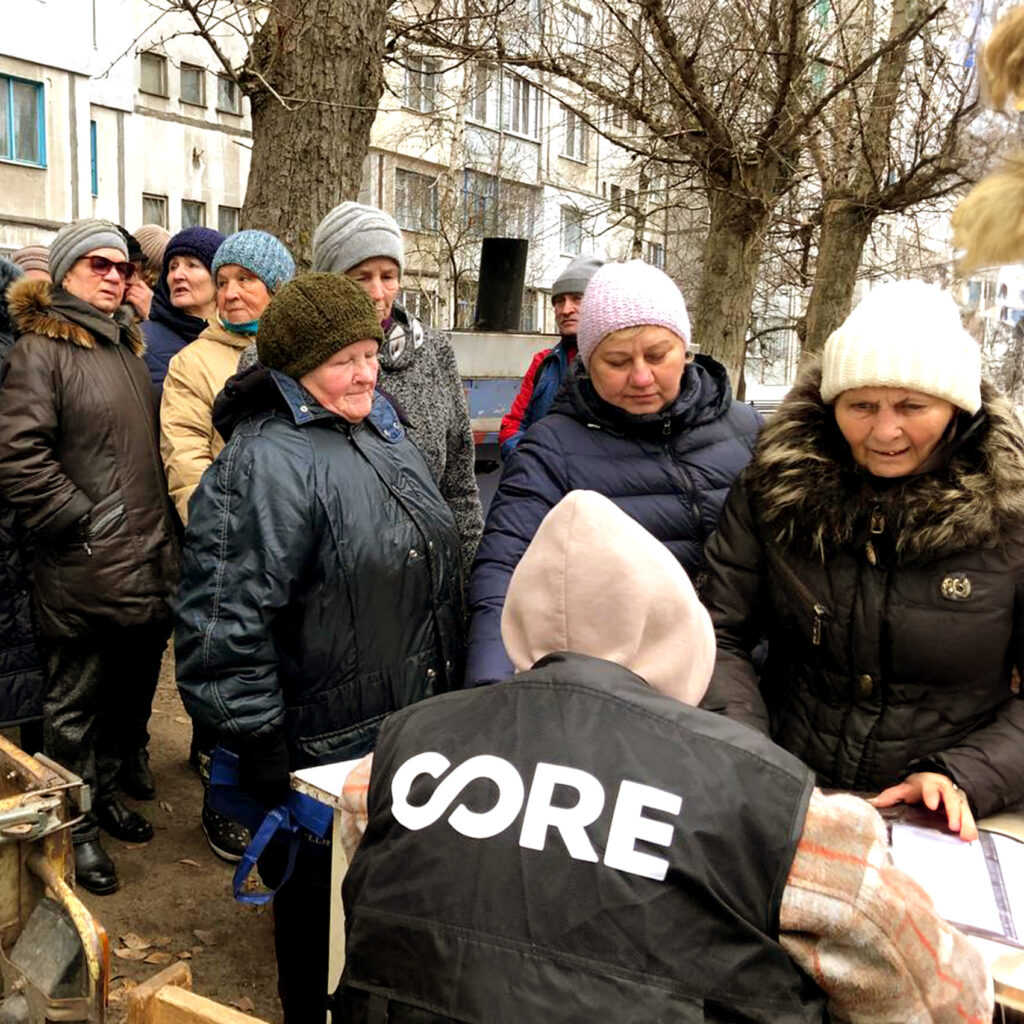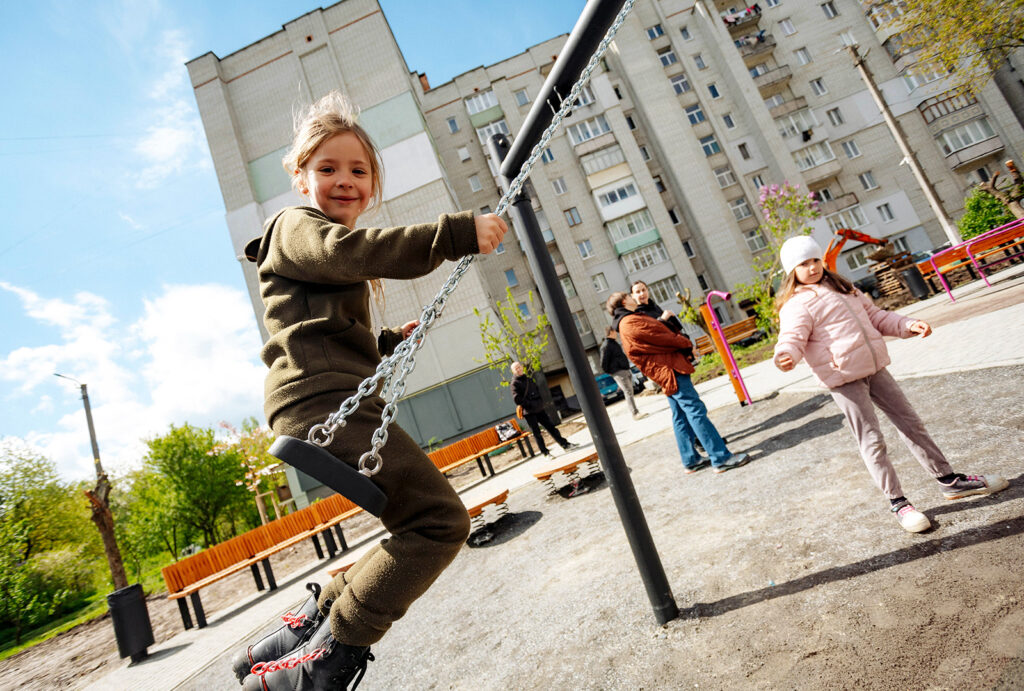HIGHLIGHTS
GET TO KNOW US
GET INVOLVED
MEDIA

REGIONS
California, Georgia, Chicago, North Carolina, New Orleans, Puerto Rico, Kentucky, Navajo Nation, Washington, D.C., Hawaii
INTERNATIONAL

Executive Director, Ukraine - CORE (Community Organized Relief Effort)
Liana has been working to advance social cohesion initiatives in Eastern Ukraine since 2015. She is currently serving as CORE’s Executive Director in Ukraine, which has become one of our most robust emergency responses to date. Today, Liana leads a diverse team of 25 people across the country, many of whom have been displaced from their hometowns since the war began.
The United Nation estimates that $3.1 billion is needed to help the most vulnerable Ukrainians impacted by the war. To put this figure into context, that’s twice the projected 2024 revenue of Kyiv – or two-thirds of Ukraine’s entire education budget for the year. It is critical that humanitarian responses match the scale of the work in this area, and that organizations work together to deliver relief quickly and efficiently.
The war has greatly increased my country’s need for assistance. After the full-scale invasion by Russia in 2022, foreign aid went from comprising a small to a significant portion of Ukraine’s national budget. According to the Institute for the Study of War, Ukraine has received $178 billion over the past two years.
This amount is not astronomical for a country at war. We need funds for everything: from defense and support for those affected by the conflict, to social expenditures and the restoration of damaged infrastructure. Based on my experience in the humanitarian aid sector, I can say that the effective use of donor funds for all these challenges requires an extremely efficient organization of operational activities.

The CORE team distributes food and cash assistance in Ukraine. (Photo by CORE)
People not familiar with humanitarian aid should realize its delivery is layered and complex. For instance, the funds allocated to support people living on the frontlines must go far beyond simply purchasing food or coal. Many factors must be considered, such as: Exactly what groups of people in which communities are prioritized? What urgent needs must be focused on first? And how much money will be allocated? This planning must also factor in requirements for goods, suppliers, and other criteria for how the aid will be provided – not to mention the urgency and uncertainty of martial law. At the same time, the assistance must be timely. Urgency is one of the basic principles of response. It is no surprise that when there are hundreds of such organizations and thousands of assistance requests, this process needs to be streamlined in order to be effective.
By the end of 2022, there were about 700 humanitarian organizations operating in Ukraine. We don’t have any data more recent than this, but it’s safe to say this number has increased since then, as there is still much humanitarian work to be done. However, the vast scale of operations means there is often a lack collaboration between participants, and the relief-delivery process lacks consistency.
Humanitarian work resembles a complex mechanism with hundreds of gears. While some elements rotate together in the same direction, others rotate on their own, not interacting with the rest of the system. This can lead to inconsistencies and decreased effectiveness in providing assistance – which can often have critical consequences.
This brings to mind a situation that occurred after the Kakhovka hydroelectric power station was blown up. As we responded to the disaster, the CORE team noticed that many local organizations were delivering water and food to those affected. This is obviously a vital need to meet. However, we saw this led to a surplus of water and some food, even as people desperately lacked materials to clean up the flooded areas — such as garbage bags, gloves, and tools. CORE saw this resource gap and decided to help cover these particular supply needs. This example clearly demonstrates the need for coordination and coherence. After all, when a tragedy or a disaster strikes, we need to act as quickly and efficiently as possible.
The coordination issues between humanitarian organizations are not unique to Ukraine. However, we are at a point where the lack of effective cooperation in this area can have very unfortunate consequences. That is why CORE, together with the Aspen Institute Kyiv, decided to bring together the participants of the aid process to find ways to build the necessary coordination system. This initiative was implemented within the program “Relief for Ukraine: Support Ecosystem for Ukrainians” with a series of seminars.
To better understand the situation, we invited people from the government, international organizations, the humanitarian sector, and local authorities to participate. To start, all those involved agreed that the relief being provided should empower those receiving it to get back to their active, normal lives (at least as much as is possible during this conflict).
We approached it from the angle of not simply giving people a fish, but supplying them with a fishing rod AND teaching them how to use it. The same applies to the restoration of communities. We have to help them regain their capacity, not just to survive. This is the principle that guides us at СORE when we are responding to a crisis. Those who are receiving assistance must be actively involved in this process.
Another important aspect necessary for effective coordination in the humanitarian sector is the improvement of response protocols. In particular, the digitalization of aid providers and recipients, as well as their needs. The government is already working in this direction. In fact, Oksana Zholnovych, Minister of Social Policy of Ukraine, shared during one of our seminars that Ukraine has already introduced an automated system for tracking humanitarian aid. When it is fully operational, we will receive information on what relief is coming in, where it is going, and who is receiving it. This will allow us to verify the support and make sure its delivery is more transparent.
An equally important point to consider when coordinating aid is the need to listen to those we are helping. The Head of Office at OCHA Ukraine, Sarah Hilding der Weduwen, emphasized this by saying: “Obviously, for an effective humanitarian response, we need to understand the specifics of the region, because the situation is very different in each,” she said. “Local organizations know it much better. Therefore, it is very important to include them in the existing architecture of humanitarian assistance.”

A young girl on a swing in the new playground build in the Ukrainian town of Stebnyk. (Photo by CORE)
The main goal of aid coordination is to ensure that the humanitarian system operates transparently, reliably, and that it is kept intact. As a result, we all will be able to respond to the needs of people affected quickly and smoothly.
If all participants – the state, international partners, Ukrainian humanitarian and charitable organizations, and communities – act in unison, the relief process will be simplified and require fewer human, financial, and time resources. This means that those who need help will be able to get exactly what they need, when they need it.
In this process, the state should take a leading role, ensuring that the needs of the affected population are recorded and monitored. The government should serve a bridge, helping overcome the lack of communication at the national, regional, and local levels. This will eliminate the inconsistency of various institutions providing humanitarian assistance.
Ultimately, improving the system of humanitarian response coordination in times of war will allow us to cope more effectively with future challenges. Therefore, this process has a very practical and far-sighted strategic goal. While some of the practical steps to improve the system remain to be seen, this must be done jointly by all parties involved in providing assistance.
This article was originally published in Left Bank, a Ukrainian online newspaper.
HIGHLIGHTS
GET TO KNOW US
GET INVOLVED
MEDIA

REGIONS
California, Georgia, Chicago, North Carolina, New Orleans, Puerto Rico, Kentucky, Navajo Nation, Washington, D.C., Hawaii
INTERNATIONAL

CORE is a charitable 501(c)(3) nonprofit organization. Federal tax ID: 27-1703237.
© 2024 | CORE – Community Organized Relief Effort | +1 (323) 934 4400
910 N Hill St Los Angeles, CA 90012